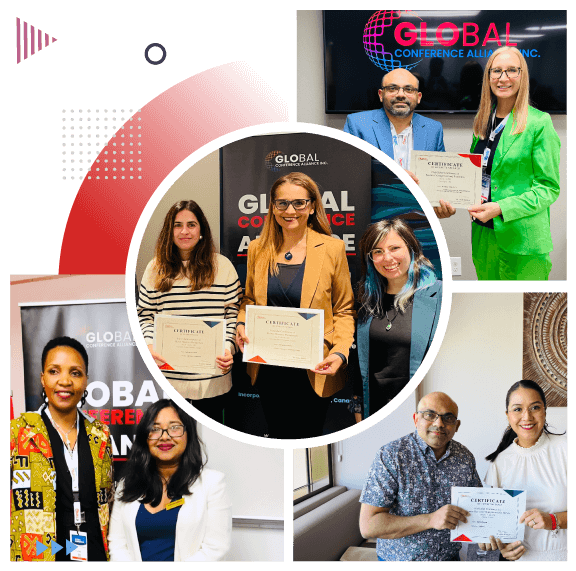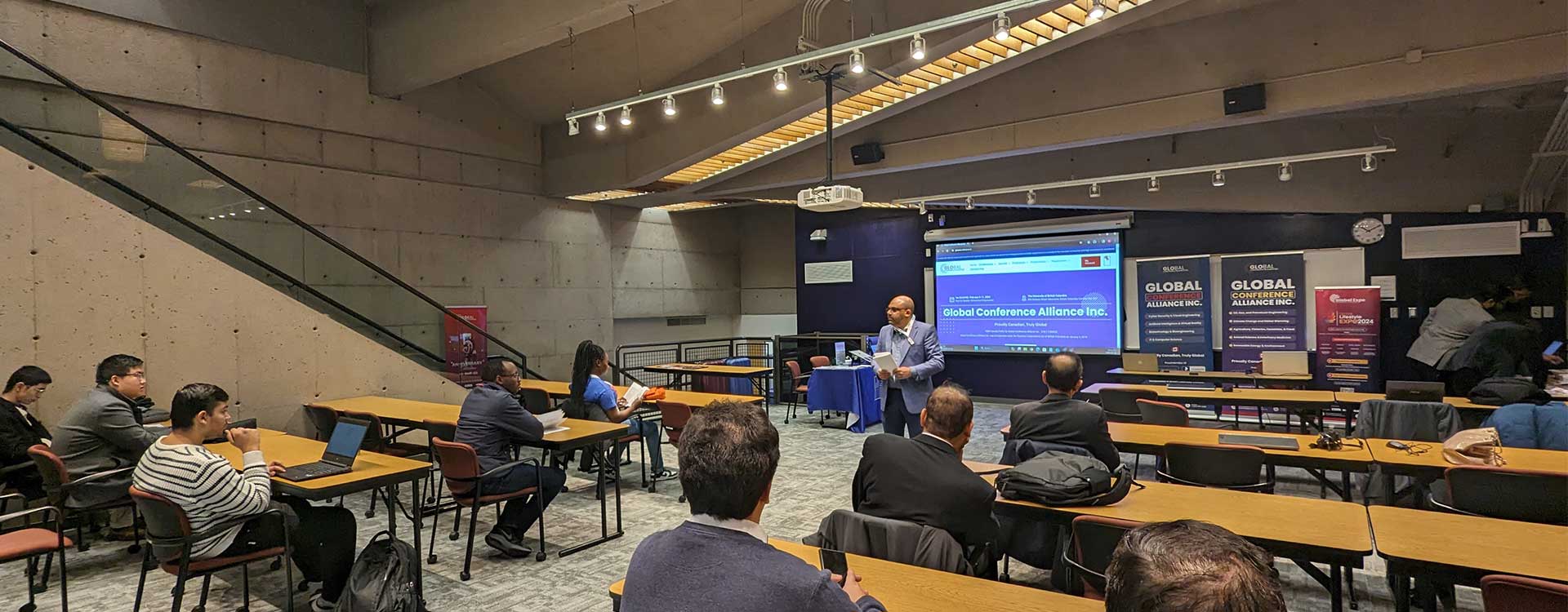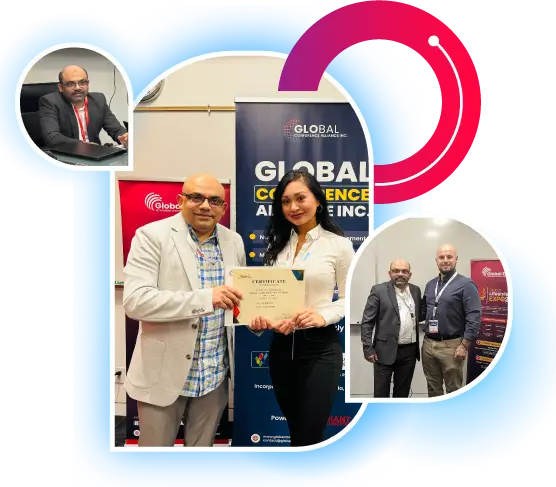
What You Need to Know About Fake Invitation Letter Scams?
Fake invitation letter scams are becoming more common, especially in the world of international conferences. These scams often target professionals, researchers, and academics looking for a conference with invitation letter that promises speaking slots, visa support, or guaranteed entry to global events.
Behind these promises are individuals or groups trying to steal money or personal information. These fake letters may use logos, names, or email addresses that closely resemble legitimate conference organizers, like Global Conference Alliance Inc. At first glance, it seems genuine, and hard to spot the difference.
We've seen a growing number of these scams misusing our name, particularly in Africa and other regions. Some individuals have been deceived into paying registration or visa processing fees for events we don’t host and exist. That’s why you suggest our guests, delegates, and participants remain cautious, verify every invitation, and report anything suspicious through our website.
How Fake Invitations Work?
Fake invitation letter scams usually start with an email that looks real and authentic. It might come from an address that looks like a real organization, and the message often includes professionally made letterhead and logos. Scammers congratulate the target on being invited to attend or speak at international conferences in popular cities or places in countries like Canada, the USA, and Australia.
As soon as you show interest, they quickly move on to the next step. They usually ask for personal details, passport copies, or advance payments. You might be convinced by the charges as they show them as registration fees, visa processing costs, or accommodation bookings. The tone is usually urgent and urging you to act fast to secure your spot.
Though scammers might create temporary events or pages on various social media or free-domain websites, they don’t exist at all. Their purpose is to get money or sensitive information before you realize you've been misled. That’s why it's so important to pause, check the details, and always verify any conference invitation before responding.
Common Red Flags to Identify a Fake Invitation Letter
Since scammers give their best effort to make the invitation letter for conference participation look real, spotting a fake one can be tricky. But with a little awareness, you can avoid falling into the trap. Here are some common red flags for you to identify a fake invitation letter.
How Do We Send Official Invitation Letters?
Global Conference Alliance Inc. always comes with a clear and secure process for sending official invitation letters. We ensure every letter we send is verifiable, trackable, and supported by accurate records. Here’s how you can recognize a real invitation from us.

How to Verify Your Invitation Letter With Us?
To protect our participants from fake invitation letter scams, we’ve built a quick and secure way to verify their invitation for conference participation. Whether you're applying for a conference visa invitation letter to the U.S. or Canada, this step ensures your letter is legitimate and approved. You can verify your invitation letter by following these steps.
Step 1
Visit Our Verification Page
Go to our verification page by clicking on the “Registration Verification” menu from the quick link of the website bottom. This page is open to all participants and embassy officials looking to confirm the authenticity of an invitation letter.
Step 2
Enter Your Registration Number
You’ll see a page appear with a verifiable field and button. Take the unique registration number included in your invitation letter. Put your registration number and passport number in the required field. Click on the verify button.
Step 3
Match Your Information
If your invitation letter is valid, you’ll see a green verification tick along with your key registration information displayed on the screen. This includes your full name, registration number, passport number, and the country where your passport was issued.
What to Do If You Receive a Fake Invitation Letter?
If you’ve received an invitation letter that seems suspicious or turns out to be fake, don’t panic. There are a few steps you can take right away to protect yourself and help us prevent others from falling into the same trap. Here's what to do.
- Use Our Verification Tool: Go to our verification page”globalconference.ca/registration-verification” and use the verification feature to check whether your invitation is legitimate. You’ll need the registration number and passport number mentioned in the letter.
- Report It to Us Immediately: Please let our team know if you find the invitation to be fake immediately. You can forward the email and attached documents to our official support address at [email protected].
- Inform the Embassy (If Needed): If you have already submitted the letter as part of a visa application, inform the embassy that you suspect the invitation might be fraudulent. This protects your visa record and shows that you're acting responsibly.
- Stay Updated Through Our Website: Check our official website for the list of real events and announcements. If the event in your letter is not listed there, it doesn’t exist. Staying informed helps you avoid scams connected to conference visas.
Success Story: Conan Businge’s Journey to a Verified Conference
As a Marketing Manager at Victoria University Kampala, Uganda, I’ve always valued the importance of global exposure for growth. But after falling victim to a fake conference invitation in the past, I became extremely cautious. I lost money, time, and trust. It made me question every international opportunity that came my way. The process of visa applications, registrations, and payments felt risky. Like many others, I wanted to grow professionally, but the fear of being scammed again held me back.
Then I came across the Global Conference Alliance in Canada. At first, I thought—what if it’s just another scam? But something was different. Their website was detailed, the events were clearly listed, and past attendees gave their feedback. They also provided clear visa support, guiding me through every step. That gave me the confidence to move forward.
I attended powerful keynote sessions that focused on global marketing trends and digital branding. I joined panel discussions where I got to speak about Victoria University’s approach to student engagement. I met professionals from Asia, Europe, and North America. I left the conference not just inspired, but with real connections that I’m already applying back home.
Here’s what truly made the difference for me:
- Global Conference Alliance gave me a verified and trusted invitation.
- Their team professionally supported my Canadian visa application.
- Exceptional networking opportunities with professionals worldwide.
- Every step, from registration to participation, was smooth and secure.
If you’ve ever been unsure about joining an international conference, I understand your fear. But with GCA, I found a platform I could finally trust.
Still Not Sure About Your Invitation? Let Us Help You Verify It.
If you’re in doubt whether your invitation letter is real or just doesn’t feel right, don’t take chances. Let us protect your visa process, your personal information, and your trust in global events.




